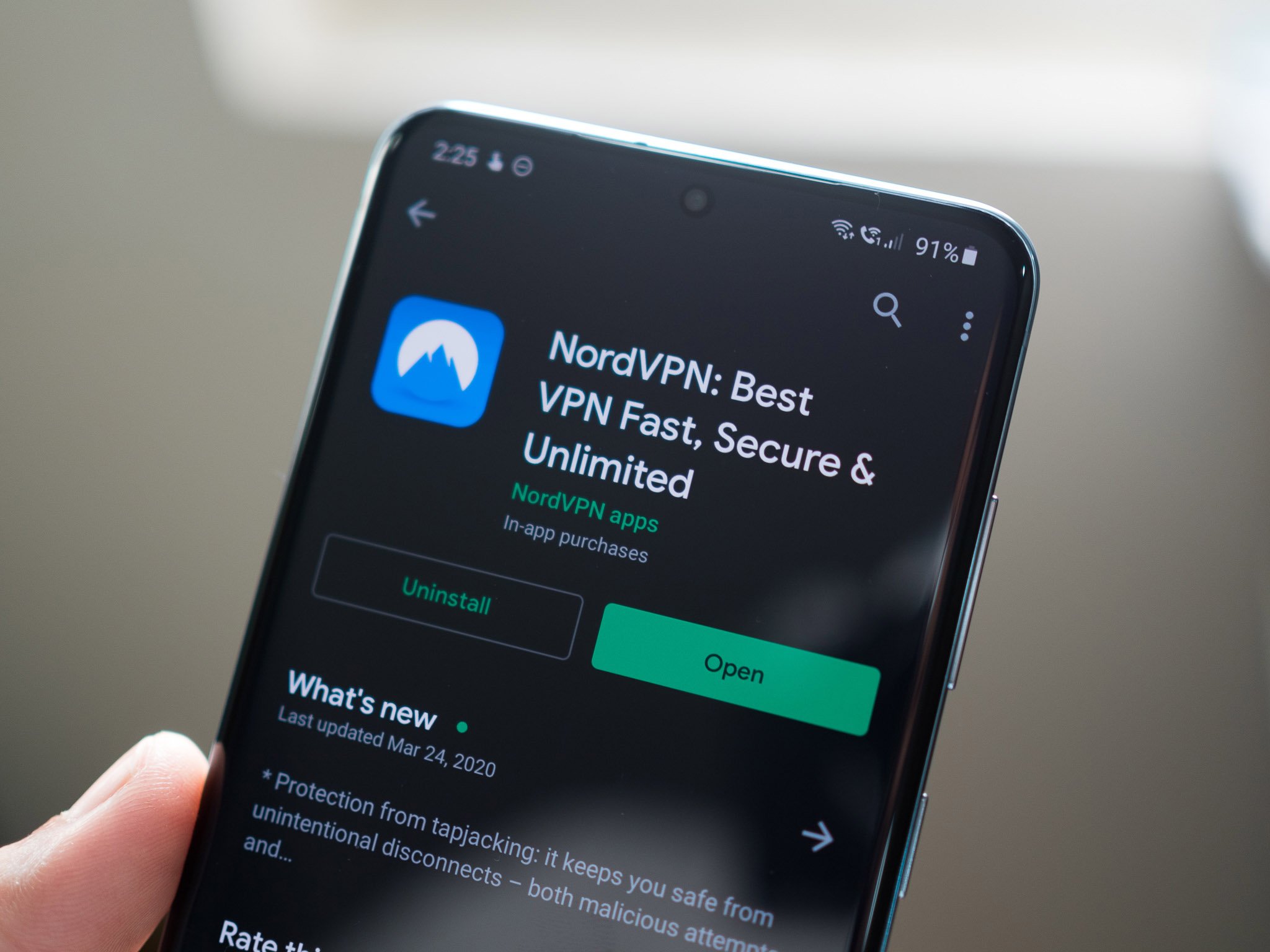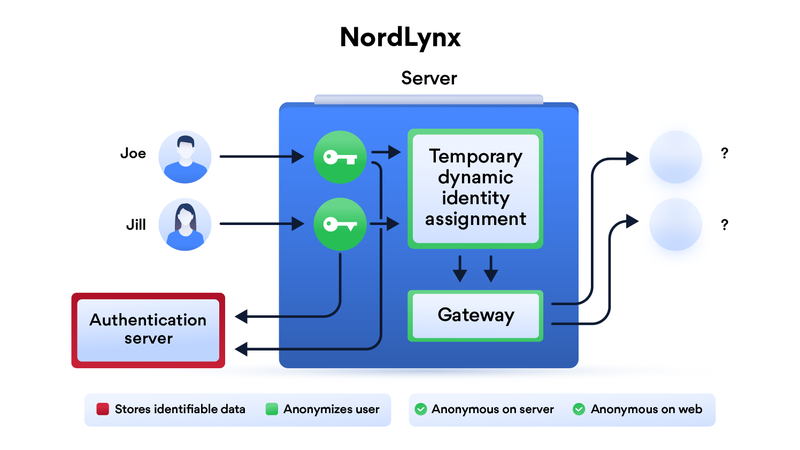NordVPN now offers WireGuard VPN tunneling protocol on all platforms

Get the latest news from Android Central, your trusted companion in the world of Android
You are now subscribed
Your newsletter sign-up was successful
What you need to know
- NordVPN is now rolling out the WireGuard VPN tunneling protocol on all platforms.
- WireGuard offers significant speed benefits to existing VPN standards like OpenVPN.
- The VPN provider started integrating the standard last year on Linux, and it's now available on Android, iOS, Windows, and Mac as well.
- NordVPN is using a double NAT system to ensure privacy, and you can start using the new protocol right away by switching to the NordLynx standard.
If you're using a VPN to protect your privacy while browsing, there's a good chance that your VPN provider is using either OpenVPN or IPSec to create a secure tunnel. These two protocols have been a mainstay for a while now, but they have their drawbacks, particularly when it comes to end-to-end encryption.
Over the last 12 months, WireGuard has emerged as an alternative to the OpenVPN standard. WireGuard offers clear advantages when it comes to speed and is better at maintaining a connection — even on mobile — and as a result it has gained momentum. Essentially, think of WireGuard as the leaner and more secure alternative to OpenVPN and IPSec. WireGuard hit v1 earlier this year for Linux-based builds, and it's now gaining mainstream adoption by way of NordVPN. WireGuard was already available on a few VPNs like Mullvad, and services like IPVN already offer the protocol on all platforms. NordVPN is doing the same now.
NordVPN is one of the best VPNs around for its feature-list and speed, and the service is now offering its users the ability to switch to the WireGuard protocol on all platforms. NordVPN started integrating WireGuard on Linux last year via a new feature called NordLynx, and starting today the protocol is available on all platforms, including Android, iOS, Windows, Mac, and Linux. What this means is that if you're a NordVPN user, you will be able to switch to WireGuard regardless of whatever platform you're using.
While that's a welcome move, there's more to the story. Because WireGuard cannot dynamically assign IP addresses to all devices connected to a server, NordVPN is relying on a double NAT (Network Address Translation) system as a workaround.

This is the basis for the NordLynx feature, and it works like this:
To put it simply, the double NAT system creates two local network interfaces for each user. The first interface assigns a local IP address to all users connected to a server. Unlike in the original WireGuard protocol, each user gets the same IP address.Once a VPN tunnel is established, the second network interface with a dynamic NAT system kicks in. The system assigns a unique IP address for each tunnel. This way, internet packets can travel between the user and their desired destination without getting mixed up.The double NAT system allows us to establish a secure VPN connection without storing any identifiable data on a server. Dynamic local IP addresses remain assigned only while the session is active. Meanwhile, user authentication is done with the help of a secure external database.
NordVPN says that by using a double NAT system, it is able to provide the same levels of privacy while leveraging all the benefits on offer with WireGuard. NordVPN also mentions that the new standard "significantly outperformed" the likes of IKEv2 and OpenVPN in internal testing.
For now, NordVPN is sticking to OpenVPN as the default protocol on its service, but that may change based on how NordLynx fares in real-world testing. If you're a NordVPN user and are interested in trying out the new standard, just select the NordLynx protocol from the settings. NordVPN says it is currently rolling out the protocol to all users, and that everyone should be able to access it by April 24.
Get the latest news from Android Central, your trusted companion in the world of Android
And if you haven't signed up yet, now is the time to make the switch to NordVPN. With plans starting at just $6.99 a month, there's no reason not to give the service a try.

NordVPN
With a no-logs policy and over 5,600 servers spread across the world, NordVPN is one of the best VPN services around. With the switch to WireGuard, you're guaranteed better connectivity and faster speeds, making an already-great VPN solution even better.
We test and review VPN services in the context of legal recreational uses. For example:
1. Accessing a service from another country (subject to the terms and conditions of that service).
2. Protecting your online security and strengthening your online privacy when abroad.
We do not support or condone the illegal or malicious use of VPN services. Consuming pirated content that is paid-for is neither endorsed nor approved by Future Publishing.

Harish Jonnalagadda is Android Central's Senior Editor overseeing mobile coverage. In his current role, he leads the site's coverage of Chinese phone brands, networking products, and AV gear. He has been testing phones for over a decade, and has extensive experience in mobile hardware and the global semiconductor industry. Contact him on Twitter at @chunkynerd.
